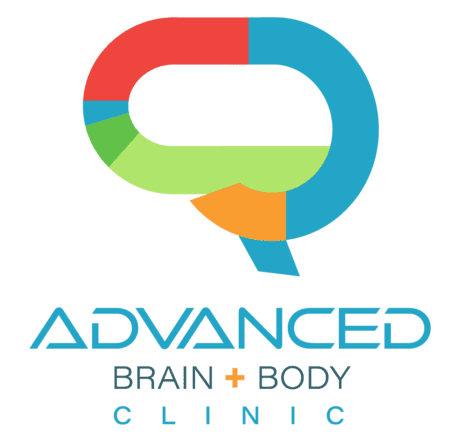A recent New York Times article¹ cites a Cambridge University study that found people with ADHD, on average, face a shorter lifespan. The study, titled “Life expectancy and years of life lost for adults with diagnosed ADHD in the UK”² reviewed mortality data of more than 30,000 individuals and discovered that men with ADHD die about 7 years earlier than their peers while women die 9 years earlier.
This is important research. It reveals the ultimate impact of ADHD in ending lives sooner than necessary.
But here’s the thing. ADHD doesn’t just shorten a lifespan. It can significantly impact an individual’s life and choices starting in childhood. As the Cambridge report states:
People with ADHD are disproportionately likely to experience:
- inequality and adversity,
- educational under-attainment,
- unemployment,
- financial problems,
- discrimination,
- contact with the criminal justice system,
- homelessness,
- reduced sleep,
- greater alcohol consumption,
- use of substances and smoking,
- more physical and mental health problems, and
- a higher risk of suicide.
Yet, ADHD is a very treatable condition. At our Minneapolis psychiatry clinic, we consistently see individuals in their 60s or 70s who, with treatment, suddenly find relief after decades of struggling—in school, at work, and with relationships. These ADHD patients often find joy along with improved focus and concentration, causing many to mourn how different their lives could have been with the right treatment.
Like Diabetes, Treat ADHD for Life
Perhaps the most important message is a quote in the Times piece:
“To me, the best analog is diabetes,” said Dr. Barkley, a retired professor of clinical psychology at Virginia Commonwealth University. “This is a disorder that you’ve got to manage, like high blood pressure, like cholesterol and diabetes. You’ve got to treat this for life.”
– New York Times, People With A.D.H.D. Are Likely to Die Significantly Earlier Than Their Peers, Study Finds
Note that the Cambridge report is based on the deaths of individuals who were diagnosed with ADHD. Most were diagnosed as adolescents. The overall prevalence of ADHD has been estimated to be between 5-10% of the general population. Unfortunately, only 10-20% of people who have ADHD are diagnosed and treated.
It’s Never Too Late to Get Screened for ADHD
As a psychiatrist, I believe that there should be mandatory ADHD screening for children. Parents should be made aware that the inattentive version (as opposed to hyperactive) of ADHD may go unobserved, especially in females. With genetic heritability as high as 80%, ADHD often affects multiple generations of the same family.³
As an adult, don’t hesitate to talk to your doctor or mental health provider about getting screened for ADHD. The criteria for ADHD are straightforward and can be easily observed for the hyperactive type, though the inattentive type frequently goes undetected.
Neuropsychological testing can provide additional information about attention, memory, and impulse control that can help confirm a diagnosis.
The Importance of Medication Management in Adult ADHD Treatment
As you can see from the long bullet list above, people with ADHD typically deal with many challenges and symptoms. They may already be receiving treatment for depression, anxiety, or related conditions. However, treating ADHD can greatly improve comorbid mental health conditions by addressing underlying neurochemical imbalances.
If you are a medical provider, read Which Do You Treat First—ADHD or Comorbid Mood Disorders?
Patients, for more information, read Is your depression/anxiety actually undiagnosed ADHD?
¹ New York Times, People With A.D.H.D. Are Likely to Die Significantly Earlier Than Their Peers, Study Finds, Jan. 24, 2025 https://www.nytimes.com/2025/01/23/health/adhd-life-expectancy.html#
² O’Nions E, El Baou C, John A, et al. Life expectancy and years of life lost for adults with diagnosed ADHD in the UK: matched cohort study. The British Journal of Psychiatry. Published online 2025:1-8. doi:10.1192/bjp.2024.199
³ Grimm O, Kranz TM, Reif A. Genetics of ADHD: What Should the Clinician Know? Curr Psychiatry Rep. 2020 Feb 27;22(4):18. doi: 10.1007/s11920-020-1141-x. PMID: 32108282; PMCID: PMC7046577.

Brian Johns, MD is a Minneapolis psychiatrist and a mental health leader who helped shape ketamine treatment for depression in Minnesota and the nation. He co-authored a Minnesota VA Hospital medical trial to open the door for ketamine treatment to change–from a revolving-door hospital intervention, to an ongoing regimen at an outpatient clinic–while setting the benchmark for ketamine infusions nationwide. He then developed the region’s first ketamine infusion clinic. Over the past several years, he has administered or overseen thousands of ketamine treatments. Dr. Johns is a graduate of the University of Minnesota Medical School and completed his residency in Psychiatry. He is certified by the American Board of Psychiatry and Neurology.

